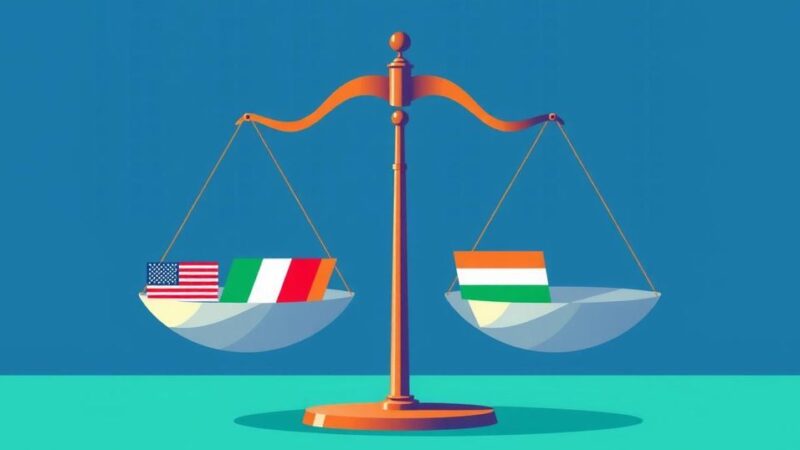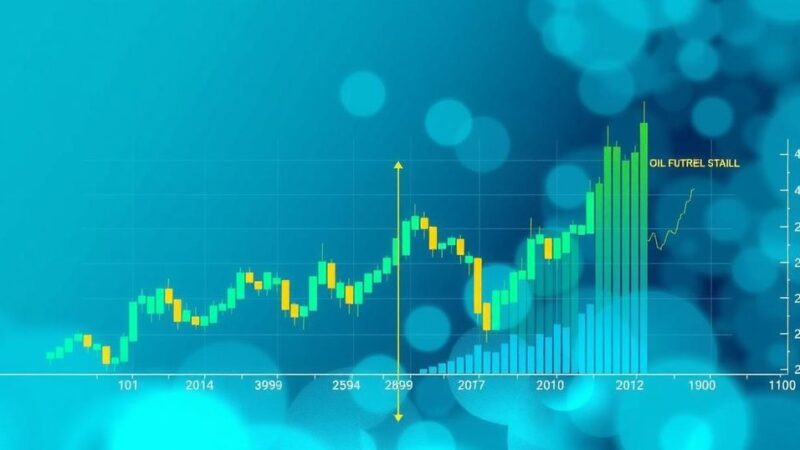The Qatar Stock Exchange has shown positive growth, with a 68-point gain in its key index and a capitalisation increase of QR2.63 billion this week. Domestic institutions remained net buyers, though with reduced engagement, as the index climbed by 0.66%. Increased demand in various sectors coincided with the launch of the Al-Nukhba programme to elevate family-owned businesses. However, foreign investors showed a shift towards net selling, reflecting changing market dynamics in response to external pressures.
The Qatar Stock Exchange (QSE) has shown resilience amidst ongoing US tariff concerns, with its main index rising by 68 points and capitalisation increasing by QR2.63 billion this week. Domestic institutions remained net buyers, albeit with reduced intensity, as the 20-stock Qatar Index climbed 0.66%. In a noteworthy development, the QSE has abolished the minimum trading commission, introducing a new fixed proportional rate of 0.00275 without a threshold.
Increased demand was observed in the transport, telecom, real estate, and consumer goods sectors, coinciding with the QSE’s unveiling of the Al-Nukhba programme, aimed at bolstering family-owned and private firms in Qatar. Meanwhile, the foreign fund segment exhibited decreased net profit bookings, with the total assets of commercial banks in Qatar growing by 3.3% year-on-year to QR2.04 trillion in January 2025.
Contrarily, Gulf institutions showed a trend towards net selling, with the AlRayan Bank-sponsored exchange-traded fund QATR recording transactions worth QR0.12 million across 22 deals. Arab individuals were similarly bearish, trading the Doha Bank-sponsored exchange-traded fund QETF valued at QR0.08 million across seven transactions.
Moreover, foreign retail investors switched to net selling, with 1,000 sovereign bonds valued at QR10 million traded in a single transaction. The Islamic index outperformed other market indices, highlighted by Doha Bank’s oversubscribed $500 million global bond, attracting 55% of investors from Europe and Asia, and the remainder from the Middle East.
The QSE’s market capitalisation increased by 0.43%, reaching QR616.07 billion, buoyed by small and microcap sectors. Trade turnover experienced a decline, and there were no treasury bills traded this week. Growth in the Total Return Index, All Islamic Index, and All Share Index was observed, mainly influenced by robust trading within the industrial and banking sectors, which contributed over 54% to total trade volumes.
Sector performance was notable, with the transport sector index gaining 3.07%, telecom by 1.78%, real estate 1.73%, and consumer goods 0.9%. In contrast, the insurance sector remained unchanged. Furthermore, Qatar’s maritime sector recorded an uptick in vessel calls and container movement through major ports this February compared to last year.
Market gains were observed in 57% of the traded constituents, with major contributors such as Qatar General Insurance and Reinsurance, Qatar Cinema and Film Distribution, and Vodafone Qatar leading the charge. Conversely, Gulf International Services and Baladna were among the notable losers.
Foreign institutions’ net selling decreased significantly to QR136.98 million from QR463.31 million the week prior. In contrast, Gulf institutions increased their net profit booking to QR23.77 million, pushing Arab retail investors into net selling for the period. Domestic institutions’ net buying substantially declined, indicating a shift in market dynamics as trade volumes and values plunged this week across various metrics, including a 46% decrease in share volumes.
The Qatar Stock Exchange has demonstrated a positive trajectory despite international tariff concerns, with key indices and market capitalisation witnessing substantial growth. However, a noticeable shift in investor behavior, particularly among foreign and Gulf institutions, suggests a complex trading environment necessitating close monitoring. The introduction of initiatives like the Al-Nukhba programme signifies ongoing efforts to strengthen the local economy, even as market turnover and trading volume have experienced marked declines.
Original Source: www.gulf-times.com






